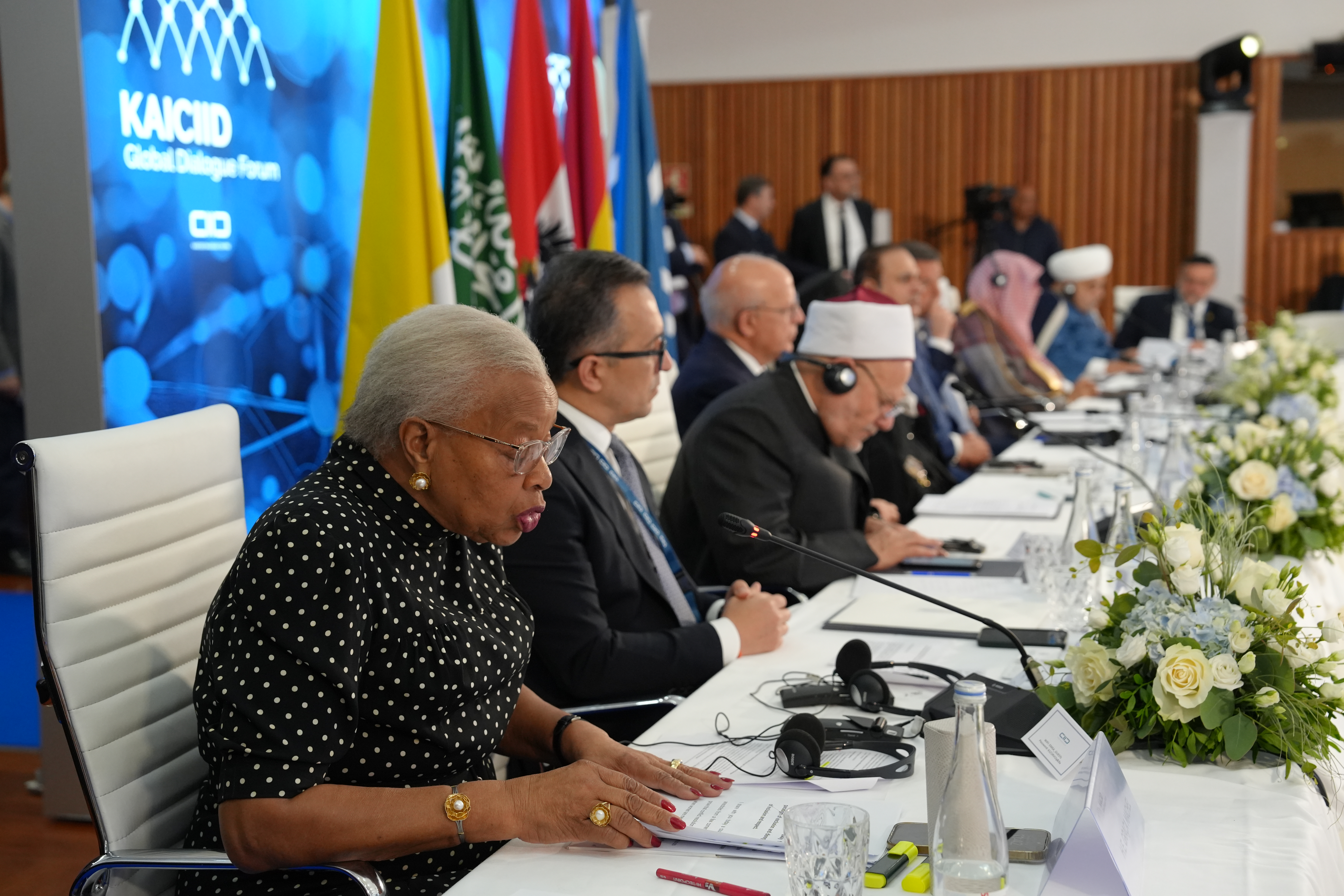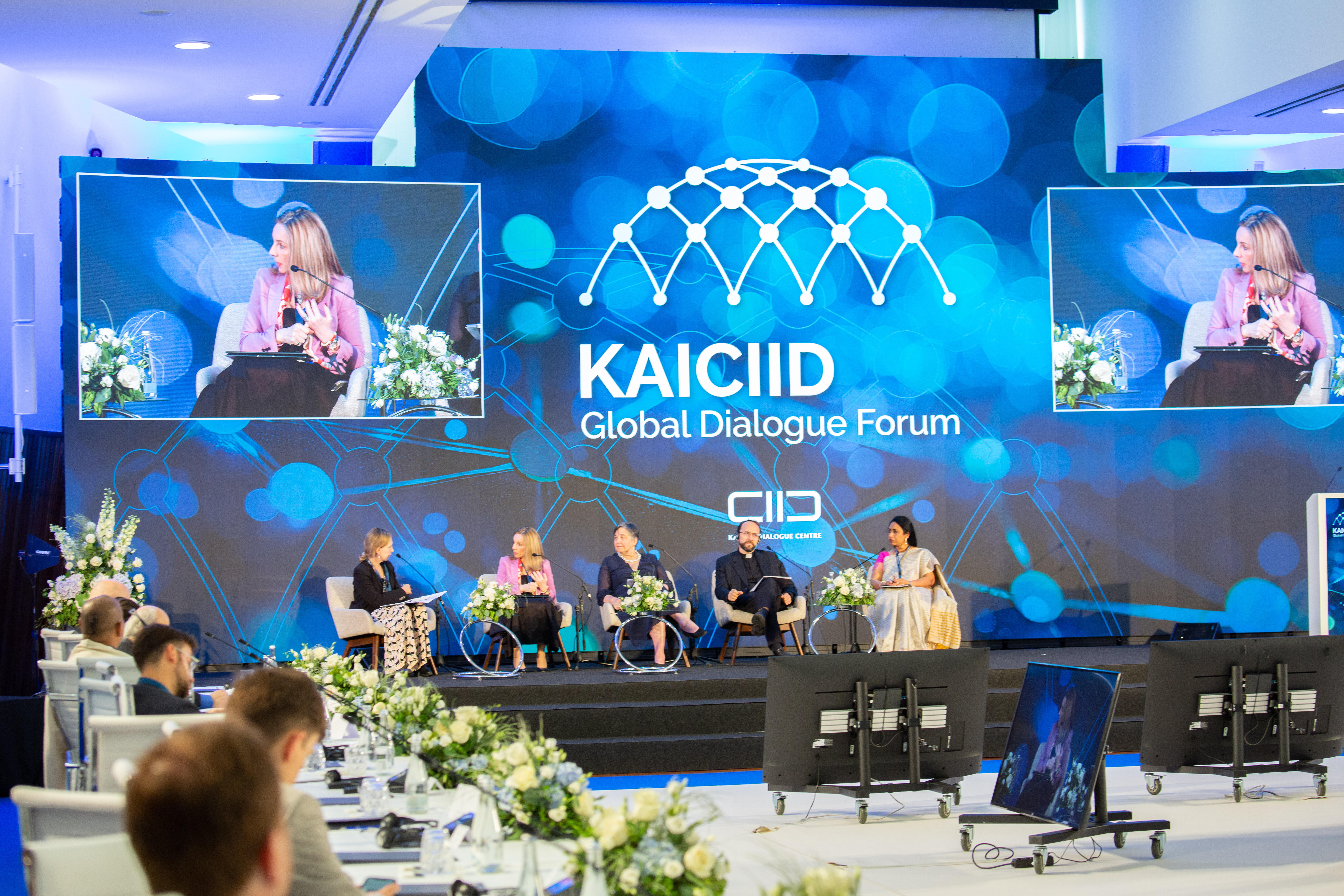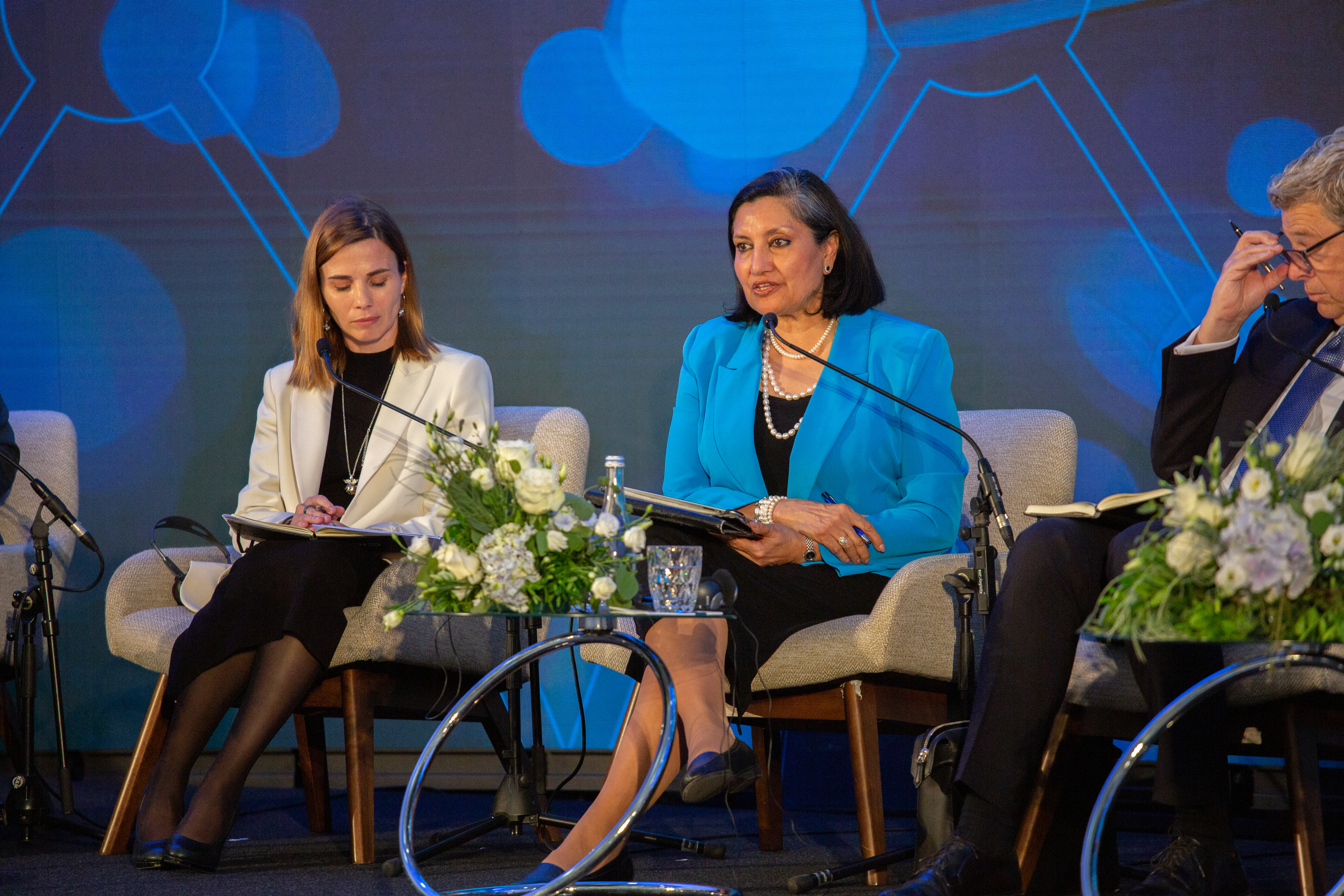
The United Nations Secretary General's bleak projection of a 300-year wait for gender equality underscores the immense structural barriers women face. Yet, at the KAICIID Global Dialogue Forum in May, women leaders showcased their determination to drive change now.
Together, the women panelists contributed a wide range of expertise on topics including peacebuilding, poverty alleviation, children's rights, and inclusive urban planning. Each noted the power of interreligious dialogue to fast track a more equitable future despite the odds.

Women as Agents of Change
Although there is overwhelming evidence that women’s participation in peace processes is key to ending violence, women still represent a small minority at negotiating tables globally, noted Graça Machel, Mozambican politician and humanitarian, during her opening remarks at the Forum.
Yet, even in the minority, they are driving remarkable change. Machel pointed to Liberia, where women from diverse religious and social backgrounds united to demand an end to civil war. Their relentless advocacy was instrumental in achieving peace and led to the election of Africa's first female president, Ellen Johnson Sirleaf.
“Women’s participation reshaped governance and contributed to lasting peace,” Machel emphasized. These stories are not just inspirational, she adds, they are blueprints for how women's leadership can transform societies.

In 2008, Machel participated in 42 days of intense negotiations in Kenya which sought to put an end to post-election conflict. As the only woman in a lead mediator role, Machel advocated relentlessly for gender inclusion in the negotiation process, insisting that women be represented in the formal delegations of each of the parties to the negotiation process.
“We were uncompromising in our intentionality and commitment to gender inclusion in our mediation process both in the participation of women and in the representation of issues that are of importance to them as we knew the impacts to advance gender equality would ripple beyond the peace agreement process,” Machel said.
Promoting Human Dignity and Equality
Another prominent peacebuilder, Miriam Ferrer, shared her own pivotal work in the Philippines peace process which highlighted how women can promote human dignity and equality through interreligious dialogue.
Ferrer was instrumental in negotiating the Comprehensive Agreement on the Bangsamoro, bringing an end to 40 years of armed conflict. Although the conflict was not strictly religious, there was mutual distrust between the Catholic Philippine State and the Muslim Moro Liberation Front, Ferrer said. “There was social discrimination against the Muslim population.”
Her inclusive approach, which involved dialogue with religious leaders and indigenous communities, was crucial in fostering mutual respect and addressing fears.
Since then, Ferrer has engaged in peace processes in Eastern Europe, Afghanistan, and Thailand. Still, she agrees with Machel that there are not enough women at the negotiation table and this needs to change. “There must be increasing effort to bring more of the affected communities, including women, inside these mechanisms through creative approaches. Unfortunately, this shift will only happen if government leaders themselves shift their mindsets.”
Inclusion and Community Building
Machel and Ferrer’s work has never been more critical as the world grapples with the highest number of violent conflicts worldwide since the Second World War. Coupled with the intensifying impacts of climate change, the number of forcibly displaced people worldwide is estimated to reach 130 million in 2024 a figure with no modern precedent.
Many people fleeing humanitarian crises are rapidly relocating to towns and cities where they often have better chances to earn a living. However, they may also face limited access to housing, healthcare, and higher-paying jobs which can exacerbate intercommunal tensions and lead to isolation.
Dr. Katherine Marshall leads the G20 Interfaith Forum, which ensures that religious voices are integral partners in humanitarian relief efforts and global development agendas. At the Global Dialogue Forum, she called for more inclusion within urban planning to prevent discrimination. Marshall highlighted the Singapore model of requiring diversity within apartment buildings as a successful approach to promoting inclusion. “It tries to ensure that people don’t just gravitate towards their own,” she explained.
Marshall contrasted this model with historic redlining practices in American cities which perpetuated segregation based on discrimination. “Housing advertisements restricted racial groups,” she said, noting that the practice is now illegal. “However, what is so worrying is that a lot of those patterns persist.”
Dr. Kezevino Aram, Head of Shanti Ashram and Chairperson of the International Ethics Education Council for Children at Arigatou International, agreed with Marshall on the importance of creating inclusive urban spaces. "If you want to create the city as a harmonious space, the means would be to commit ourselves to have them as inclusive spaces, as a space that is shared by all," Dr. Aram stated. She highlighted the critical role of dialogue in addressing the myriad crises that cities face including food insecurity, conflicts, and political divisions.
Still, she says many of our communities have never been more unequal, particularly in her home country of India. “The same 41 degrees or 40 degrees means different things for different people,” Aram said, noting that some communities lack access to water and energy distribution to combat deadly heatwaves. “A fundamental religious value is the dignity of every human being which needs to be reflected in the design of cities and public spaces.”
To do that, however, Marshall adds, policies need to promote both economic and social integration. “A policy that only looks at poverty will not get political support; we need a broader integration across communities,” she asserted. That’s where religion comes in, Marshall adds, noting that a common theme across religious traditions is care for the vulnerable. “The common concern for those left behind is one of the many meanings of inclusion - it can be the poor, but it can be other groups as well.”
Inclusive and Participatory Dialogue
Yet to drive forward inclusive, transformative change, more leaders, including women, need to be equipped with interreligious dialogue skills. “Humans are often clouded by forms of prejudice that arise from in-group and out-group distinctions based on gender, race, ethnicity, class, caste, tribe, religion, and other characteristics,” said Bani Dugal, Principal Representative of the Bahá'í International Community to the UN. Promoting a culture of dignity - one that includes traditionally marginalized groups – she added, requires a conscious effort to overcome discrimination.

She further stressed that respecting each person’s inherent dignity is not only crucial for effective interreligious dialogue but also foundational for achieving sustainable peace, building inclusive cities, and tackling global crises like climate change.
Machel says this cause of justice and equality built on human dignity is one that women leaders are campaigning for tirelessly.
“As the African women I spoke of teach us, we must muster the courage to work through our differences, so we are able to open the clenched fists and extend hands of dialogue for the benefit of our communities and nations,” she said. “The diversity of our cultures, race and ethnic backgrounds, as well as our differing religious and political leanings, are strengths that enrich us as a human family.”